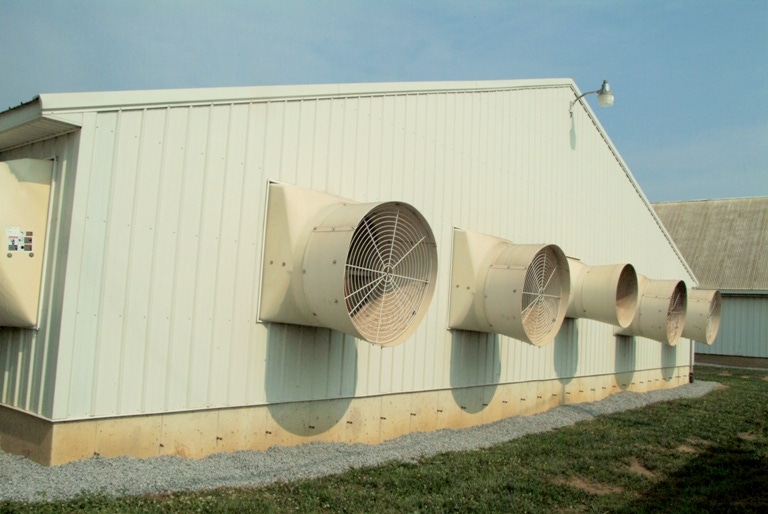August 1, 2013

A seven-year study of large North American sow farms conducted by the University of Minnesota has confirmed that the vast majority of porcine reproductive and respiratory syndrome (PRRS) outbreaks have been due to aerosol spread of the virus.
PRRS virus aerosol transmission among herds is a major concern in pig-dense regions and filtration of incoming air, in combination with standard biosecurity procedures, has been demonstrated to prevent transmission of PRRS virus into susceptible herds.
To quantify the impact of air filtration on reducing risk of PRRS virus outbreaks, University of Minnesota researchers led by Carmen Alonso compared the incidence rate of new PRRS virus introductions in 20 filtered and 17 non-filtered control sow herds in a swine-dense region of North America during a seven-year study period.
Like what you’re reading? Subscribe to the National Hog Farmer Weekly Wrap Up newsletter and get the latest news delivered right to your inbox every week!
Non-filtered farms incurred about 0.5 outbreaks per year, with a seasonal increase in risk in cooler periods. Baseline risk, prior to filtration, in treatment farms was approximately 0.75 per year, approximately 50% higher than in control farms. Air filtration significantly reduced risk of PRRS virus introduction events to 0.06–0.22 outbreaks per year, depending on the cut-off values used to classify a virus isolate as new to the herd.
Overall, air filtration led to an approximately 80% reduction in risk of introduction of novel PRRS virus, indicating that on large sow farms with good biosecurity in swine-dense regions, approximately four-fifths of PRRS virus outbreaks may be attributable to aerosol transmission.
The abstract was reported by the American Association of Swine Veterinarians.
You might also like:
Porcine Epidemic Diarrhea (PED) Virus: FAQ and Survival Tips
You May Also Like



